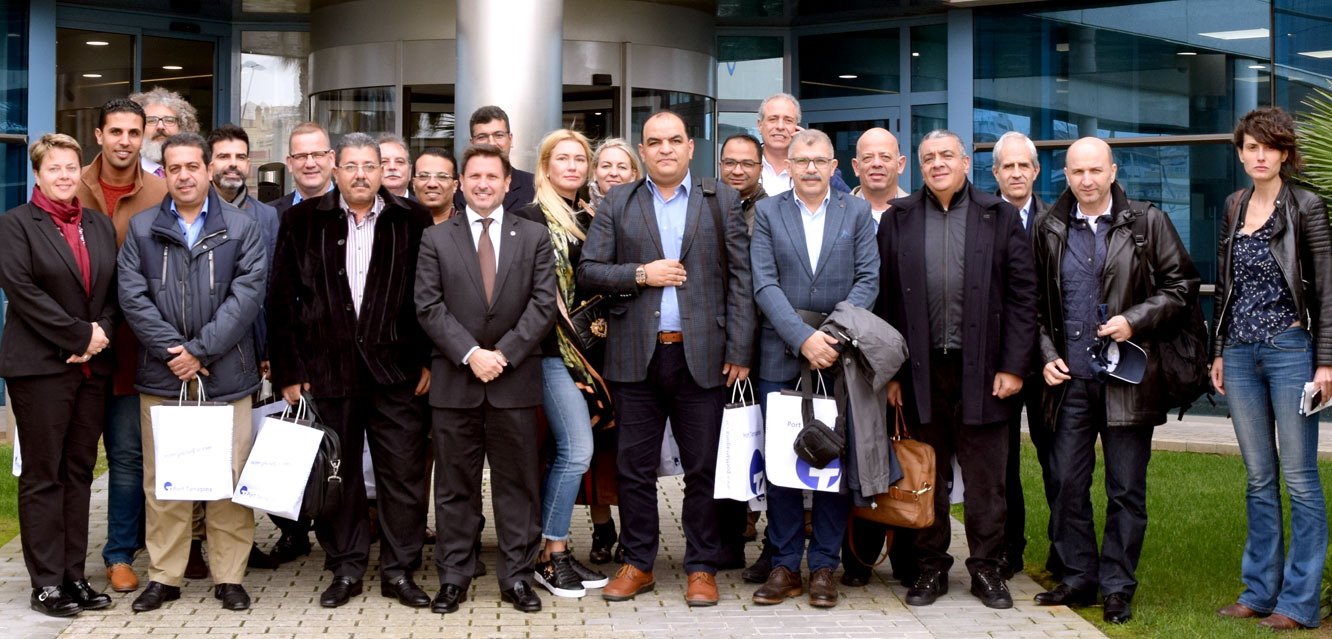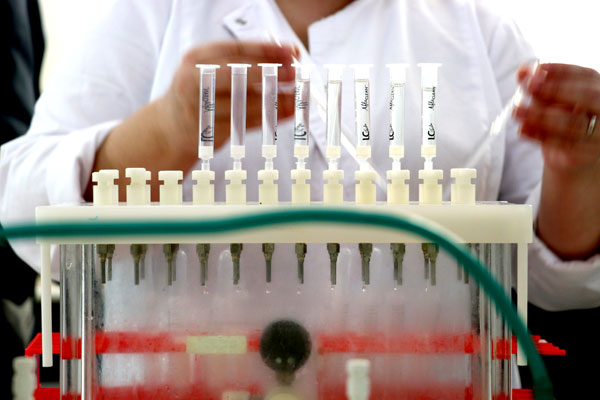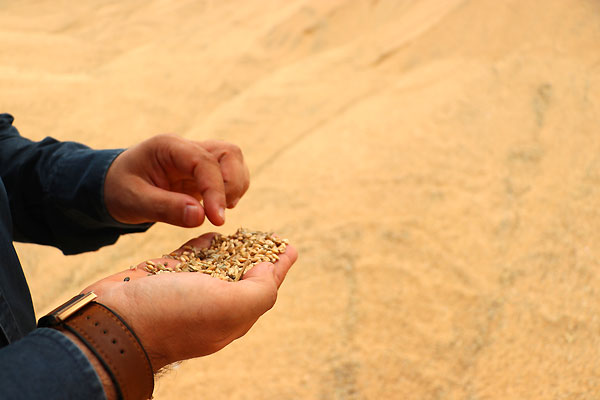To Spain for grain: Egyptian delegation study tour on grain imports

Spain is one of the main grain importers in the Mediterranean region. As such, the country has a wealth of experience to offer to its North African neighbor on the other side of the sea who faces similar challenges managing the increasing demand for grain.
A high-level public-private Egyptian delegation consisting of government representatives and members of the Egyptian Grain Suppliers Association (EGSA) travelled to Spain for a week-long study tour organized by the European Bank for Reconstruction and Development (EBRD) and the Food and Agriculture Organization of the United Nations (FAO), as part of the Public-Private Policy Dialogue in the Egyptian Grain Sector Project. The trip included visits in Madrid to the Ministry of Agriculture, Fisheries and Food of Spain and private grain associations, and to the ports of Tarragona and Malaga.
Egypt currently imports over 23 million tonnes of grain, oilseeds, and protein meals and is forecast to increase to 27 million tonnes by 2025. To manage this heavy volume more quickly and cheaply, Egypt is to upgrade its grain industry. This includes improvements in quality control, product sampling and phytosanitary inspection measures as well as investments in new storage infrastructure and port handling procedures.

Efficient controls and sufficient storage
At the Port of Tarragona, participants observed grain import handling and inspection procedures and had the opportunity to discuss these with local leaders in the sector, including fielding questions regarding waiting periods for vessels and how operations adapt in times of uncertainty, or even crisis, if a sample does not pass the tests. They visited the port facilities including Sitasa terminal and learned how the Spanish government delegates responsibilities to private laboratories as a cost-saving strategy to speed up the process of controls with a visit outside to AgroLab, which conducts quality analysis and certifies cargo. Representatives from private surveyor companies - Control Union and Cotecna - accompanied the delegation and provided further information on inspection controls by walking through step-by-step demonstrations of inspection procedures at the discharge of vessels.
“We had the opportunity to see the off-loading procedures of vessels and cargo in the ports, which operate efficiently, transferring grains from the vessels to the ports and ultimately out to the consumers. The visit to the laboratory was also beneficial to see their quick and efficient inspections of grain samples. We hope we can bring this experience to our country,” said General Ahmed Afifi, Head of Central Administration of Receiving and Distribution for the General Authority for Supplies Commodities.
The visit to the Port of Malaga introduced the idea of new grain storage and transportation infrastructures, including horizontal silos, as well as flat warehouse storage that minimizes grain losses and can be installed in a matter of weeks – a potential solution for peak periods of demand such as during the harvest season in Egypt.
“The study tour provided a lot of useful information to consider in Egypt. Our plan now is to receive grains and wheat directly from farmers with immediate transport to small silos in close proximity to the fields and to use the short-term storage solution that we have seen in the Port of Malaga,” noted General Sherif Bassily, Chairman of the Egyptian Holding Company for Silos and Storage.
“We also took note of the safe way that grain is transported in Spain using covered trucks that protect the grains from the sun and rain and we hope to transfer this technology to Egypt, reducing grain waste during transport between ports and silos.”
While in Madrid, the delegation met with officials from the Ministry of Agriculture, Fisheries and Food of Spain regarding phytosanitary controls and government inspection regulations. The delegation also met with representatives from the Spanish associations of feed manufacturers and flour millers to learn how the private sector organizes its work in these two crucial sectors.

Public-Private Dialogue
The tour also proved to be an excellent opportunity for the participants to engage in public-private, as well as intra-government agency dialogue on improving efficiency in Egypt’s grain supply chain.
“The EBRD-FAO program is a neutral avenue that allows people to talk in an environment that can lead to a positive dialogue. We have gained some ground throughout the ongoing workshops and have made improvements – slowly but surely,” said Sherif Abou El Seoud, Secretary General of EGSA.
Overall, the discussions shed light on better practices in the discharging of bulk grains and how to significantly reduce the handling time and storage costs that would result in savings of USD 1 billion for the Egyptian economy in the next decade.
“As per Egypt’s priorities stipulated in the Country Programming Framework (CPF) that was signed between FAO and the Egyptian government, the public-private policy dialogue is critical to improve the grain sector for an enabling environment of improved coordination among agricultural development stakeholders, and for better agricultural investment,” said Hussein Gadain, FAO Representative in Egypt.
For useful information from the study tour, photos and more, visit the project page here.
See curated set of photos from the study tour here.
